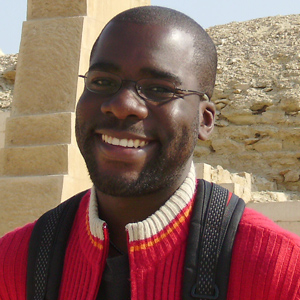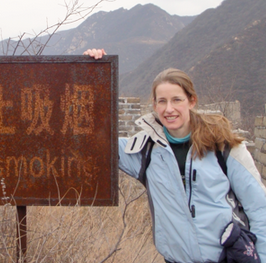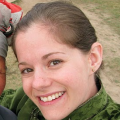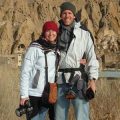100 Books in 100 Months: Eugene Yiga’s Literary Quest
This is a quest case study. (Read others or nominate yourself.)
Eugene Yiga fell in love with the written word – and took that love to quest-level when he decided to read the 100 Greatest Books of All Time, in the 100 months leading up to his 30th birthday. Here’s his story.
Tell us about yourself:
I’m regularly told I sound British or American, but I was born in South Africa and have lived in this amazing country all my life. Even though I studied finance, accounting, and classical piano at the University of Cape Town, I now work as a writer, consultant, and coach with almost two and a half years of full-time experience in branding, communications, and market research.
Even though there are a clearly a lot of ways to describe myself, I can sum it up in two words: reading and writing. (Okay, that was three, but you get the idea!) Without a doubt, these have always been my greatest passions in life. And that’s why, in November 2007, I set out to read the 100 greatest books of all time in the 100 months leading up to my 30th birthday in March 2016.
Why did you decide to undertake your quest?
I’ve always loved reading, so this just felt like a natural idea. Instead of chasing all sorts of “literary flavors of the month”—you know, whatever is popular at any given moment—I’d focus on the classics that have stood the test of time. Even though a lot has changed in terms of human progress over hundreds or even thousands of years, people are still the same. The best books tap into the universal human emotions and experiences—love, loss, and everything in-between—and connect us across space and time.

What is it about more modern books that doesn’t resonate with you?
With some exceptions, new books tend to be about action and plot while classic books focus on character and the people who drive the story forward. That’s not to say I dislike modern books. I’m currently reading (and really enjoying) White Teeth by Zadie Smith, and earlier this year I really enjoyed The Corrections by Jonathan Franzen. I just happen to prefer books that have had a chance to prove their worth. For example, will Fifty Shades of Grey be discussed (and praised) in a hundred years? If not, why bother reading it?
What are the costs associated with reading all these books?
I use public and university libraries so the quest hasn’t cost me any money. It just takes a lot of time!
Are there challenges associated with relying on public systems?
I started the quest while I was still a student at the University of Cape Town. The library on campus was massive, well-organized and had every book you could imagine—and if they didn’t, they’d place a request to purchase it. Right now I rely on a few small libraries in my neighborhood. While they aren’t all well-stocked, many of them transfer books between each other at a small fee. Still, it’s a bit challenging finding an obscure title (especially because I prefer not to use an eReader or tablet) and that is one of the reasons I still haven’t gotten around to the last three books on the list.
Tell us about a low point in your journey:
At first, I felt compelled to read every single book from start to end, even the ones I didn’t like. With the exception of Dante’s Inferno, which I really liked, epic poems were a challenge. But I forced myself to finish The Aeneid and Beowulf, even though they didn’t resonate with me. Then I got to The Odyssey and The Iliad and felt just as detached. I realized life is too short for slogging through things you don’t enjoy (yes, careers, and relationships of course, but this applies even to books).
This was a quest for me, not to prove something to anyone else. It was meant to be fun. So I decided that each book would get a trial period. If I didn’t like it after a maximum of fifty pages, I’d move on to the next one.
Any characters you’ve enjoyed “meeting”?
Some of my favorite characters are pretty tragic: Anna Karenina, Madame Bovary, and even Oedipus Rex. There’s something honest about a story where characters are flawed and things don’t always tie up in a neat little bow.
Favorite book so far?
I hardly know where to begin; there are just too many. For poets: Browning, Dickinson, Frost, Yeats and Keats. For novelists: Dostoyevsky, Dickens, Hugo, Orwell, and Steinbeck.
A few other books that stand out are Lord of the Flies and Revolutionary Road (not for people who like happy endings!); The Picture of Dorian Gray and A Handful of Dust (which made me gasp out loud); Portnoy’s Complaint and Tropic of Capricorn (both hilarious but not for the sensitive); and Dracula and The Woman in White (which made it hard for me to sleep for a while).

What advice would you give to someone else considering a quest?
I’m going to keep reading for the rest of my life. It doesn’t matter if I read one book, a hundred books or a thousand. What matters is that I keep learning and keep growing. Every book I read adds value to my life and I like to believe that this value is passed on to other people. So, win or lose, everyone wins! And I think every quest is like that.
What’s next?
I decided to combine four different top 100 lists (which have some overlap) into 350 books I want to read before I turn 40. There’s also a list of the 1001 books you should read before you die, which might be a good way to go next.
Keep up to date on Eugene and at The Monumental Life , or follow along with him on Twitter @monumentallife.
###







